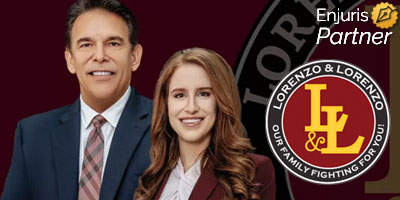What legal options do you have if you’re burned in an accident?
What’s the largest organ in your body? Your skin. Our skin is the envelope holding in all our other life-saving organs. Serious burns can be life-altering, leaving you scarred, in pain, disfigured or even dead.
If the burn was caused by someone’s reckless disregard, you might be able to sue for negligence or wrongful death.
Juries take the pain and suffering of burns into account during their deliberations, and legal settlements resulting from them can be substantial. If you are suffering from severe pain and have significant medical bills, this could be something for you to consider.

Sample accident journal/diary to help you document the effect on your daily life
Download in PDF format
Of course, it can be difficult to ascertain how much a burn injury settlement might be beforehand. Factors that can affect the verdict could be:
- How severe your injury is (these typically fall under “catastrophic injuries”);
- The extent to which the responsible party can pay damages; or
- The intent of the party who caused the burns.
Since the pain and suffering surrounding burn victims is generally much higher than that of other victims, higher settlements are usually the result. However, it can be a long road to get there, and that road can be paved with lots of medical experts and testimony. You’ll want a burn injury lawyer to help you.
Elements of a burn injury lawsuit in Florida
Like all negligence cases, you – the plaintiff – have the burden of proof, which means that you have to establish that you were injured. You must provide enough evidence to show that the defendant caused your burn injuries. To do this under Florida law, you have to show the following:
- The defendant owed you a duty of care. For instance, say you were at work and the defendant was your boss. This means that your boss had a duty to keep your workplace in reasonably safe order, and that you shouldn’t be getting burned while performing your normal 9 to 5 duties.
- The defendant breached that duty of care. In our example, let’s say that your boss acted with reckless disregard by failing to label a bottle that contained an unnamed chemical cleaning agent.
- That breach of duty directly led to your injuries, and that breach caused damages. You were harmed when you tried to use the bottle to wash your hands; your skin became badly burned by the chemical agent and you accrued significant medical bills in treating the chemical burn.
How and where the burn happened on your body
Though it might sound crass, how and where a burn occurred will affect a plaintiff’s potential settlement. Was it the victim’s face that was disfigured, or was it his arm? Will he have to wear a shirt at the beach for the rest of his life? Or was it something that can be easily hidden?
Additionally, the jury will look at the physical location of where the burn occurred and whether it was foreseeable. The following are places where burns might happen:
- Defective industrial equipment and products
- Defective household products
- Flammable materials
- Structural fires
- Automobile crashes (with or without drunk driving)
- Gas explosions
- Workplace accidents
- Faulty wiring
There are also complexities in burn cases that will affect potential rewards, such as whether it took place at work – if it were avoidable, a jury may not feel a reward is prudent, even if there are significant medical bills. However, if it were because of an employer’s failure to follow OSHA regulations, then the value might go up again. It’s all a crapshoot.
Possible compensation in a Florida burn injury case
If you can establish that you have been burned because of an individual’s or company’s negligence, then Florida law will allow you to be compensated for:
- Medical bills (both future and past) related to your burn injuries;
- Wages that you have lost, as well as wages you might lose in the future because of your injuries;
- Expenses related to burn injuries that were paid out of pocket; and
- Pain and suffering.
There are damage caps in Florida, but those are generally for punitive damages. If the defendant purposely intended to harm the plaintiff, then there is no limitation on punitive damages. Additionally, if the defendant did not intend to harm the plaintiff, but knew that harm was likely and he acted in an unreasonably dangerous manner that was motivated solely by financial gain, then punitive damages are allowed. In all other cases, punitive damages are limited to three times the value of compensatory damages awarded to each claimant, or $500,000.
Of course, like with everything, there may be certain exceptions.
Wrongful death after a burn injury
There is also the option of filing a wrongful death suit if a loved one has passed away because of a burn injury.
In Florida, Statute Section 768.19 requires that the decedent’s Personal Representative, or the one named by the deceased person’s will, bring the case before the probate court. If there is no will, then an appropriate Personal Representative will be named by the court. The statute of limitations is two years from the date of death.
There are five types of survivors who can recover wrongful death damages (i.e., pain and suffering):
- The surviving spouse;
- Adult children (when there is no surviving spouse);
- Minor children;
- Each parent of a deceased minor child; and
- The parents of an adult child (when there are no other survivors).
The estate can recover loss of net accumulations, lost earnings, and medical and funeral expenses. The survivors can recover damages for lost support and services; the loss of the decedent’s companionship, protection, guidance and instruction; pain and suffering; and medical and funeral expenses (when they were paid by the survivors).
Talking to a lawyer
If you need someone to help you through this difficult process, read some of the resources below and speak with Florida attorneys who are well versed in this area. They will be able to assist you.

Worksheet with questions to ask a personal injury attorney to help determine if he or she will be a good fit for your case
Download in PDF format
Resources to help you hire the best Florida burn injury lawyer
- How to find a good Florida personal injury lawyer
- What does a Florida personal injury lawyer actually do for you?
- Preparing to meet with a personal injury attorney
- How to talk to a lawyer
- Negotiating lawyers’ fees - how do accident lawyers charge? Are there any hidden costs?
See our guide Choosing a personal injury attorney.




